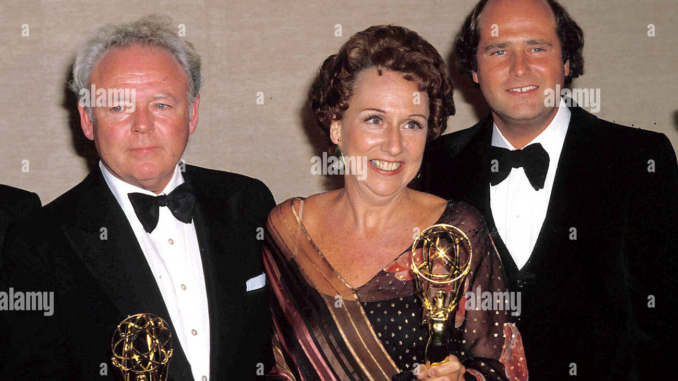
When All in the Family premiered in 1971, it didn’t just entertain; it transformed the landscape of television forever. The show introduced audiences to the Bunker family, a group of characters that tackled social issues with humor and honesty. With its groundbreaking approach to storytelling, All in the Family paved the way for future sitcoms to address serious topics while still making viewers laugh. In this article, we’ll take a nostalgic look back at the cast of All in the Family, exploring their roles and the lasting impact they had on television.
The Legacy of All in the Family
A Cultural Milestone
All in the Family was more than just a sitcom; it was a cultural milestone. The show tackled issues such as racism, gender roles, and class struggles, often through the lens of humor. This approach allowed audiences to engage with difficult topics in a way that was both entertaining and thought-provoking.
The Bunker Family Dynamics
At the heart of the show was the Bunker family, consisting of Archie, Edith, and their daughter Gloria. Their interactions provided a rich tapestry of humor and conflict, making them relatable to viewers from all walks of life.
Meet the Bunkers: The Cast of All in the Family
1. Carroll O’Connor as Archie Bunker
The Iconic Patriarch
Carroll O’Connor portrayed Archie Bunker, the show’s loud-mouthed, opinionated patriarch. Archie was known for his conservative views and often outdated beliefs, which led to many comedic and poignant moments throughout the series.
Impact on Television
O’Connor’s performance was groundbreaking, as he brought depth to a character that could have easily been one-dimensional. His ability to balance humor with serious themes made Archie a complex and memorable character.
2. Jean Stapleton as Edith Bunker
The Heart of the Family
Jean Stapleton played Edith Bunker, Archie’s loving but often naive wife. Edith’s character provided a counterbalance to Archie’s brashness, showcasing a gentler side of family life.
A Strong Female Presence
Stapleton’s portrayal of Edith was significant for its time. She represented the struggles of women in a changing society, and her character’s growth throughout the series resonated with many viewers.
3. Sally Struthers as Gloria Bunker
The Progressive Daughter
Sally Struthers played Gloria, the Bunkers’ daughter, who often found herself caught between her father’s outdated views and her own progressive beliefs. Gloria’s character was a reflection of the changing attitudes of the 1970s.
A Voice for Change
Struthers’ performance highlighted the generational divide in the family, making Gloria a relatable character for younger audiences. Her struggles to assert her independence and challenge her father’s views were central to many storylines.
4. Rob Reiner as Michael “Meathead” Stivic
The Liberal Son-in-Law
Rob Reiner portrayed Michael Stivic, affectionately known as “Meathead.” As Gloria’s husband, Michael often clashed with Archie over political and social issues, providing a comedic foil to Archie’s character.
Bridging the Gap
Reiner’s portrayal of Michael brought a fresh perspective to the show, representing the younger generation’s views. His character’s debates with Archie were not only humorous but also highlighted the cultural shifts of the time.
The Show’s Impact on Television
Addressing Social Issues
All in the Family was revolutionary in its willingness to tackle social issues head-on. The show addressed topics such as racism, feminism, and the Vietnam War, making it a platform for important conversations.
Influencing Future Sitcoms
The success of All in the Family paved the way for future sitcoms to explore serious themes. Shows like The Fresh Prince of Bel-Air and Roseanne followed in its footsteps, using humor to address social issues.
Memorable Episodes and Moments
1. “The Draft Dodger”
In this episode, Archie confronts his views on the Vietnam War when his son-in-law, Michael, reveals he has a friend who dodged the draft. The episode highlights the generational divide and the complexities of patriotism.
2. “Sammy’s Visit”
When Sammy Davis Jr. visits the Bunkers, Archie’s prejudices are put to the test. This episode is a classic example of how the show used humor to address racism and promote understanding.
3. “Edith’s 50th Birthday”
This heartfelt episode showcases the love and appreciation the family has for Edith. It highlights the importance of family and the often-overlooked contributions of women.
The Enduring Legacy of the Bunkers
Cultural Relevance Today
The themes explored in All in the Family remain relevant today. Issues of race, gender, and class continue to be at the forefront of societal discussions, making the show’s legacy even more significant.
A Lasting Influence
The Bunker family has left an indelible mark on television history. Their stories continue to resonate with audiences, reminding us of the power of humor in addressing serious topics.
Conclusion: Celebrating the Bunkers
As we look back at the cast of All in the Family, it’s clear that the Bunkers changed television forever. Their ability to tackle complex social issues with humor and heart made them iconic characters that continue to inspire new generations. The legacy of All in the Family serves as a reminder of the importance of storytelling in shaping cultural conversations.
